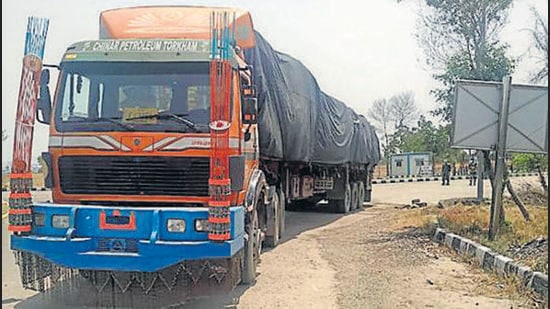On trade, India has legal instruments to hold Afghanistan accountable
Since the Taliban now claims to represent Afghanistan at national and international forums, it is under a legal duty to comply with all the international law obligations that bind Afghanistan
One of the many consequences of the Taliban’s dreadful takeover of Afghanistan has been the abrupt meltdown of India-Afghanistan trade. The Taliban has shut the trade route, undermining bilateral trade worth $1.5 billion. In the past two decades, India has emerged as an important destination for Afghanistan’s agricultural exports such as dry fruits, whose prices have now soared in the Indian market. Likewise, India’s exports to Afghanistan, totalling almost $1 billion, include tea, cement, sugar, and pharmaceuticals.

Politically, India will take steps to find a solution to this trade impasse. It is equally germane for India to be mindful of options under international law to hold the Taliban accountable for the illegal shutting down of the trade route. Remember, under international law, the Taliban’s unconstitutional takeover of the government hasn’t changed the legal personality of Afghanistan as a nation-State. Since the Taliban now claims to represent Afghanistan at national and international forums, it is under a legal duty to comply with all the international law obligations that bind Afghanistan.
There are three international legal instruments that India has in its policy arsenal to deal with the trade stalemate.
Also Read | UN committee to discuss Taliban travel sanctions
The first is the preferential trade agreement (PTA), signed in 2003, by the governments of Atal Bihari Vajpayee and Hamid Karzai. The objective of PTA is to boost trade between the two countries, leading to a harmonious development of bilateral economic relations. Under Article II of PTA, both countries are under an obligation to grant preferential access to each other’s products listed in the treaty. Likewise, under Article V of PTA, both countries are under an obligation to accord national treatment to each other’s products i.e; confer treatment no less favourable than that accorded to like domestic products. The Taliban’s decision to shut down the trade route violates Articles II and V of PTA.
The second legal instrument is the South Asian Free Trade Area (SAFTA) agreement, signed under the patronage of the South Asian Association for Regional Cooperation (SAARC). Afghanistan acceded to SAARC in 2007 and ratified SAFTA in 2011. Under SAFTA, Afghanistan’s products enjoy duty-free access to India. This access was hugely instrumental in furthering Afghanistan’s imports to India, especially dry fruits. Like the India-Afghanistan PTA, SAFTA also contains provisions on tariff liberalisation (Article 7) and national treatment (Article 5). By imposing a trade ban, Afghanistan is not complying with its SAFTA obligations towards India of providing preferential access to the products listed in its schedule of commitments.
Also Read | The economy’s two paths to recovery
The third legal instrument that India could deploy is the General Agreement on Tariffs and Trade (GATT) and the World Trade Organization (WTO) agreement. Afghanistan was not a founding member of the WTO. It became a member of the WTO in 2016, as a least developed country, after going through a long accession process. Subject to its accession protocol, Afghanistan is under an obligation to uphold all the GATT and WTO commitments ranging from national treatment to most-favoured nation ie, not discriminating between imported products, irrespective of country of origin. Taliban’s trade ban violates several of Afghanistan’s WTO legal obligations towards India.
In holding the Taliban answerable under the India-Afghanistan PTA and SAFTA, a deterrent India may confront is the weak dispute-settlement mechanism in these treaties. Unlike WTO’s dispute settlement mechanism that follows a two-tiered judicial adjudication involving independent judges, SAFTA relies on the wisdom of politicians and bureaucrats to settle trade disputes. The India-Afghanistan PTA reposes faith in the industry chambers of the two countries to settle trade disputes through consultations and arbitration.
India should explore this international law option, as it prepares for the long haul of dealing with the consequence of the Taliban’s takeover. While Taliban leader Mohammed Abbas Stanekzai said that the group wants to continue Afghanistan’s trade ties with India, the question is whether Afghanistan’s new rulers will walk the talk.
Prabhash Ranjan is professor and vice-dean, Jindal Global Law School, O P Jindal Global University
The views expressed are personal
Continue reading with HT Premium Subscription




